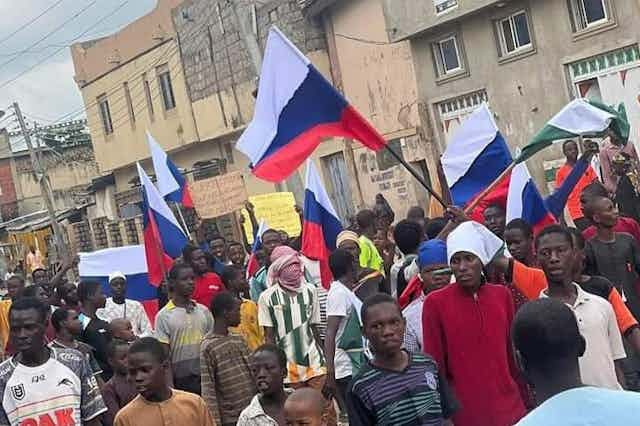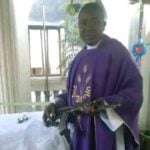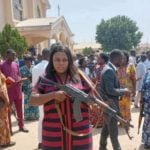The August ‘End Bad Governance’ protest in Nigeria took a new turn on its third day when some Nigerian demonstrators, particularly in the northern part of the country, began to wave the Russian flag, a move condemned by the Nigerian government as “treasonable”.
This was unlike the 2020 #EndSARS protest, where demonstrators held Nigerian flags and passionately sang the national anthem despite facing gunfire from soldiers in Lagos. This time, protesters in several states were seen waving Russian flags signaling the probability of Foreign Information Manipulation and Interference (FIMI) in the country.
From August 1 till August 10 this year, hundreds of Nigerians took to the streets to demand economic and political reforms. The initially peaceful protests, dubbed #EndBadGovernanceinNigeria, eventually turned violent, resulting in casualties and damage to properties.
The protesters demanded the reinstatement of petrol subsidy removed by President Bola Ahmed Tinubu during his inaugural speech in May 2023, a reduction in fuel prices to below N300 per litre, lower electricity tariffs, and the reversal of import duties to their previous rates, among other issues.
Despite efforts by the Nigerian government to prevent the protests through persuasion and warnings, that didn’t stop Nigerians from taking to the streets to express their frustration. According to Amnesty International, at least 21 people died during the protest and over 1,000 people were imprisoned or still facing trials.
One of the major events that marked the protest was the hoisting of Russian flags by some citizens in some northern states such as Kano, Borno, Kaduna, Plateau and Katsina. They chanted the name of the country and its president, Vladimir Putin to intervene in Nigeria’s situation.
DOES THIS PRO-RUSSIA TREND SHOW A GROWING SHIFT IN PUBLIC OPINION IN NIGERIA?
In Kaduna, protesters were chanting in Hausa, “Tinubu ze soka’ kaa’sa,” which translates to, “Tinubu must step down,” Punch reported. They also hailed military personnel, who patrolled the metropolis, chanting, “Tinubu yaa’so’ka, mu’na so soja”, meaning, “Tinubu step down, we want soldiers.”
Lawal Kodo, a 28-year old protester in Kano, told Reuters that: “We are waving the Russian flag because Tinubu’s government is not listening to us. Russian presidents always support African nations’ development, unlike other nations.”
Even though the Russian Embassy in Nigeria has since dissociated its country from the incident, experts who spoke with The FactCheckHub said the development might not be unconnected to the growing Russian influence from the Sahel region to their neighbouring states in Northern Nigeria.
Northern Nigeria shares strong cultural, religious and socio-economic ties with neighbours in the Sahel, which has seen a string of coups and military leaders turning away from Western allies towards Russia.
Russia has been linked to the coup d’etats in some West African countries, notably Mali, Burkina Faso and Niger which were preceded by intensive disinformation aimed at destabilizing the democratically-elected governments in place.
The military governments of the three countries have also pulled out of the Economic Community of West African States (ECOWAS) being chaired by the Nigerian president, Bola Ahmed Tinubu.
The experts noted that the protesters might nurture a false notion that the economic hardship in the country is due to Western policies adopted by the Nigerian government, particularly those of the International Monetary Fund (IMF) and the United States and thus see Russia as an alternative.
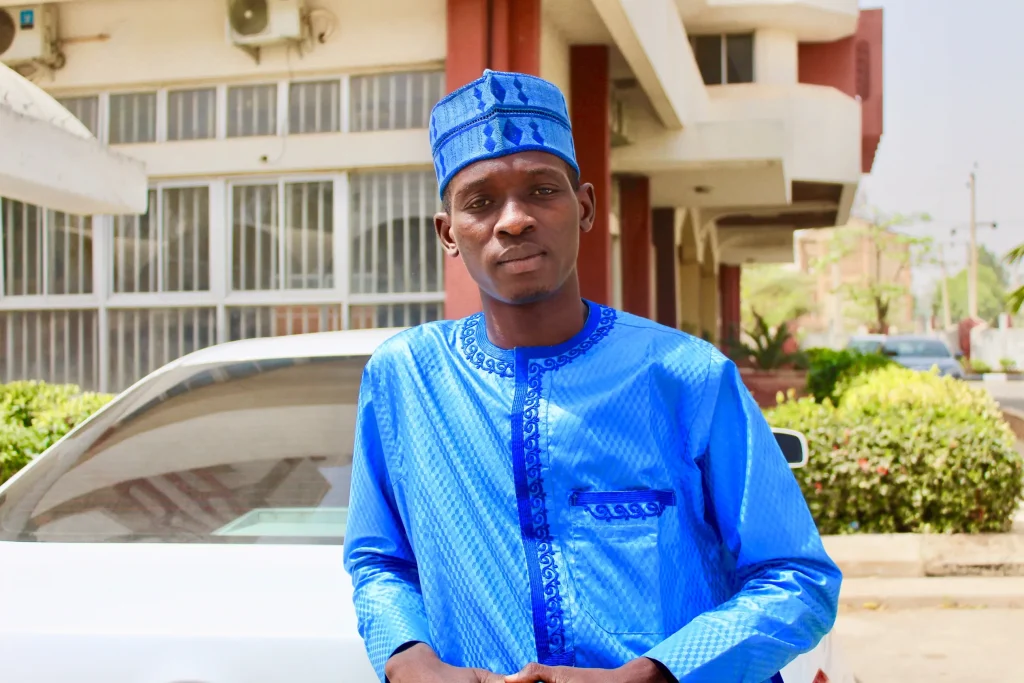
The Head of Radicalism and Extremism desk at Humangle, Aliyu Dahiru, observes that the act of raising Russian flags by some people in Northern Nigeria is driven by underlying frustration with Western influence in Nigeria, particularly the IMF policies and the United States.
“A lot of people are blaming the IMF for the hardships they are currently experiencing. They claim that raising Russian flags, will send a message to those Western countries or to the American countries that they are not enjoying what the IMF is doing to this country, and they are going to move to Russia if nothing changes,” he said.
“But this influence is also coming down from Burkina Faso, through Mali, to the Niger Republic, and now to the Northern Nigeria region,” he added.
Recall that Russian flags were sighted previously at various rallies in Niger, Mali and Burkina Faso, as their appearance in Nigeria triggered speculation that their propaganda might have found its way to Nigeria.
Oluwole Ojewale, the Regional Coordinator for Central Africa at the Institute for Security Studies in Dakar, Senegal also shares a similar perspective noting that it points to the possibility of foreign influence infiltrating the protesters’ agenda in Nigeria.
He says the phenomenon could be linked to what he described as the “neighbourhood effect” where actions in neighbouring countries influence local events.
“Don’t forget that it’s the same people that you find on both borders of Nigeria and Niger and they saw their relatives waving the Russian flag when the military took over in that country,” Ojewale said. “I think it’s more of a replica of what has happened in those places which has characterized political protests in western African countries such as Mali and Burkina Faso and Niger.”
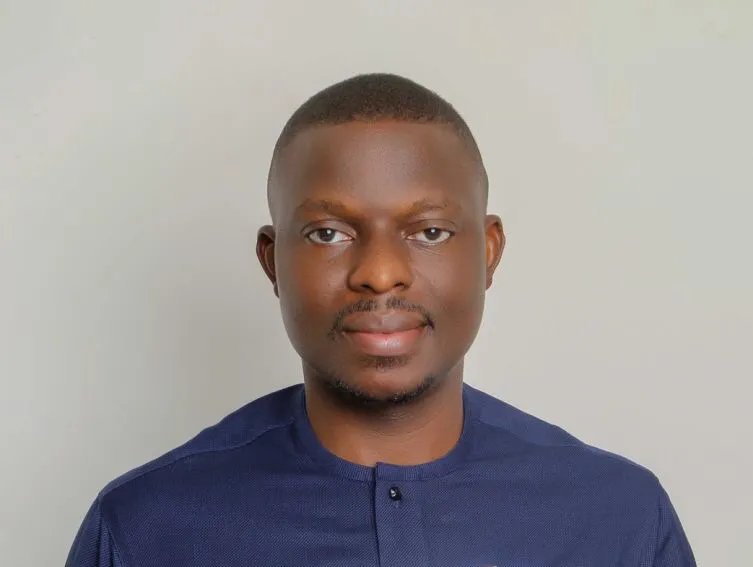
This could also be the work of embittered politicians who lost in the last general election in Nigeria and are still grappling with the outcomes, says Ojewale. He also points out the possibility that these individuals might be fueling the protests by distributing Russian flags as a symbol of dissent.
He addresses the misconception among some protesters that Russia offers an alternative to the liberal economic policies being implemented in Nigeria, which are often associated with Western institutions like the World Bank and IMF.
“But they are probably reading from a wrong textbook in the sense that they couldn’t differentiate between the Soviet Union that practised communism and the present day Russia that’s purely a capitalist society,” he cautioned, noting that “there is not an alternative that Russia offers in all these. I think it’s just a crash display of ignorance.”
NIGERIAN GOVERNMENT ARRESTS RUSSIAN FLAG HOISTERS
The Nigerian military did not also take this development lightly with some protesters caught waving foreign flags. In some states, security forces used tear gas to disperse them, and more than 90 demonstrators carrying Russian flags at the protests were subsequently arrested, according to a Voice of America (VOA) report.
Also, 76 persons including a foreign national arrested for flying the Russian flags, were among the 873 suspects picked up by security agents during the ten-day protests. The 76 persons were later moved to the Nigeria Police Force (NPF) Headquarters in Abuja for a discreet investigation on charges of sedition, Channels TV reported.
The Nigerian security agencies argued that persons flying the Russian flag have committed a treasonable offence and will, therefore, be “prosecuted”. They also probed some persons who might have allegedly orchestrated the protests and vowed to “take serious action” against them. Punch reported that some influential people in Northern Nigeria are being investigated in that regard.
Legal opinions on the matter are also divided. Activist lawyer Femi Falana agrees that brandishing the Russian flag and calling for the ousting of President Tinubu’s administration could be seen as committing treason under Nigerian law.
“Therefore, those who are involved in the illegal campaign for another military rule are advised to stop it forthwith. Otherwise, they may be accused of engaging in the offence of treasonable felony in contravention of section 41 of the Criminal Code Act,” he said.
However, human rights lawyer, Inibehe Effiong disagrees, stating that waving a Russian flag during a protest is not treasonous unless it is part of an organized plot to overthrow the government.
“Waving a Russian flag during a protest is not treasonous. I condemn those calling for a military takeover,” he said. “I also do not endorse the introduction of a foreign flag during the protest. However, to elevate the waving of a foreign flag to treason is to make a joke of the offence of treason.”
DISINFORMATION AND ADMIRATION FOR MILITARY REGIME
On the fourth day of the protest when President Tinubu addressed the nation in a nationwide broadcast, his appearance also turned into a disinformation tool used to spread Russia’s influence narrative.
Tinubu stood on a podium, with two flags behind him. One was the official flag of Nigeria, which is green and white. But another flag which was red, blue, white and green behind the president sparked a false narrative that it was a Russian flag.
However, while the Russian flag is rectangular with three equal horizontal bands – white at the top, blue in the middle and red at the bottom – the flag in the television broadcast has four colours, red at the top, followed by blue, white and green. These are the colours of the standard Nigerian President’s flag as the nation’s Commander-in-chief of the Armed Forces of Nigeria. Even though both flags have similar colours, the arrangement and number of colours are different.
Before then, various disinformation efforts have sought to portray military regimes in the Sahel region in a positive light. Since military takeovers in some African countries, this fact-checker observed a worrying pattern of some Nigerian netizens spreading false narratives suggesting that countries like Burkina Faso, Guinea, and Chad are now in good hands after being taken over by military juntas.
For instance, a video allegedly showing the erstwhile Minister of Finance of Niger, Ahmat Jidoud emerged within the Nigerian online space with a claim that the new military junta had asked him to account for stolen funds of the country within 48 hours or face execution by firing squad. However, findings showed that the claim is false. This perhaps shows an attempt to spread false narratives about the military’s intolerance for corruption.
But checks revealed that the video with the misleading caption has been on the internet as far back as December 2021, and has nothing to do with the coup or the finance minister. The identity of the man in the trending video is Marou Amadou, Niger’s former justice minister.
Another pattern observed by this fact-checker is the comparison of the Nigerian Army with those of countries overtaken by military juntas, often placing the latter in a more favourable light. A few days after the military coup in Niger, a video of soldiers showing off their weapons and military skills was wrongly labelled as Nigerien troops.
In what seems like a preparation for battle, the soldiers could be seen chanting military songs and wielding guns and knives. They were surrounded by citizens who looked at them in admiration and amazement.
The Labour Party’s (LP) gubernatorial candidate in Lagos State, Gbadebo Rhodes-Vivour, also posted the same video on his X account, in a manner that suggested that he might have been misled by the trending video.
However, The FactCheckHub’s findings showed that the soldiers featured in the video which was widely shared on TikTok, X and multiple Facebook accounts are from the Senegalese military, performing a parade to celebrate the country’s independence. The footage does not have any correlation with the Niger crisis in any way.
Additionally, to promote the narrative that countries led by military juntas are already experiencing good governance, a claim surfaced online that Burkina Faso, under its military president, Ibrahim Traoré, would no longer be importing uniforms for its police and army. This claim was also found to be FALSE.
For Bulama Bukarti, a Nigerian senior analyst in the Extremism Policy Unit of the Tony Blair Institute for Global Change, “there is a troubling increase in calls for a coup d’état by the Nigerian army.”
“Interestingly, Nigerian soldiers deployed to the protests behaved commendably, avoiding harassment or intimidation of protesters, while the police shot, arrested and harassed many. This has increased the army’s popularity in many areas, with videos circulating of soldiers helping protesters and receiving praise.
videos circulating of soldiers helping protesters and receiving praise.
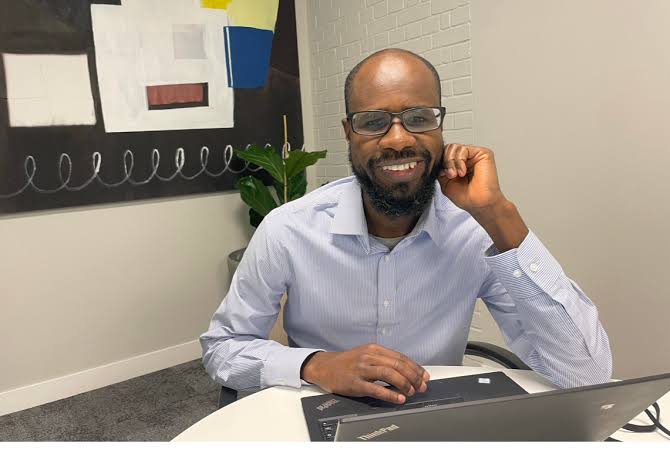
“These situations mirror what happened in Mali, Niger and elsewhere, where military coups eventually toppled democratically elected governments. When those coups occurred, we witnessed sporadic protests in support of the military and Russia, and the new military regimes immediately turned to Russia,” he said in an X post.
WHAT SHOULD THE NIGERIAN GOVERNMENT DO?
“It’s a ‘treasonable’ idea that a protest will be going on in Nigeria and some Nigerians will come out to be waving a Russian flag,” Ojewale said.
He emphasized the need for the Nigerian authorities to take action against those involved in hoisting the Russian flags during the EndBadGovernance protest. He called for the profiling and prosecution of people involved in line with extant laws of the nation.
Bukarti cautioned against military incursion into governance in Nigeria and urged politicians to tackle underlying factors responsible for the pro-Russia trend seen during the protest.
“Military governments are dictatorial, ineffective, and often brutal. I sincerely hope Nigeria does not follow this path. However, the rampant corruption, inefficiency and lack of empathy among our politicians are undermining democracy and fueling calls for a military takeover. The sooner politicians get their act together and prove their ability to govern effectively, the better it will be for everyone.
“Moreover, the pro-Russia trend could signal a growing shift in public opinion, which may, in the medium term, lead to a shift in geopolitical alliances, potentially altering Nigeria’s foreign relations and its stance in the global arena. Supporting the Nigerian government to deliver effective governance and engaging civil society and international partners can help reinforce democratic values and stabilise the nation’s political landscape,” he opined.
But Dahiru argued that arresting individuals for raising Russian flags during the protest would not address the underlying issues and could potentially exacerbate tensions in Nigeria.
Instead, he advocated for pragmatic solutions aimed at addressing the root causes of dissatisfaction that have fueled anti-West sentiment in Northern Nigeria, including economic grievances allegedly linked to IMF policies.
“The government needs to address the problem that led to this. So just arresting people—how many people will you be arresting? There are people raising Palestinian flags in this country. There are people raising Israeli flags in this country. There are people raising American flags in this country. Are we going to arrest each one of them? I don’t think that’s the right approach,” he concluded.
This article was produced by FactCheckHub and republished by TheCable.

